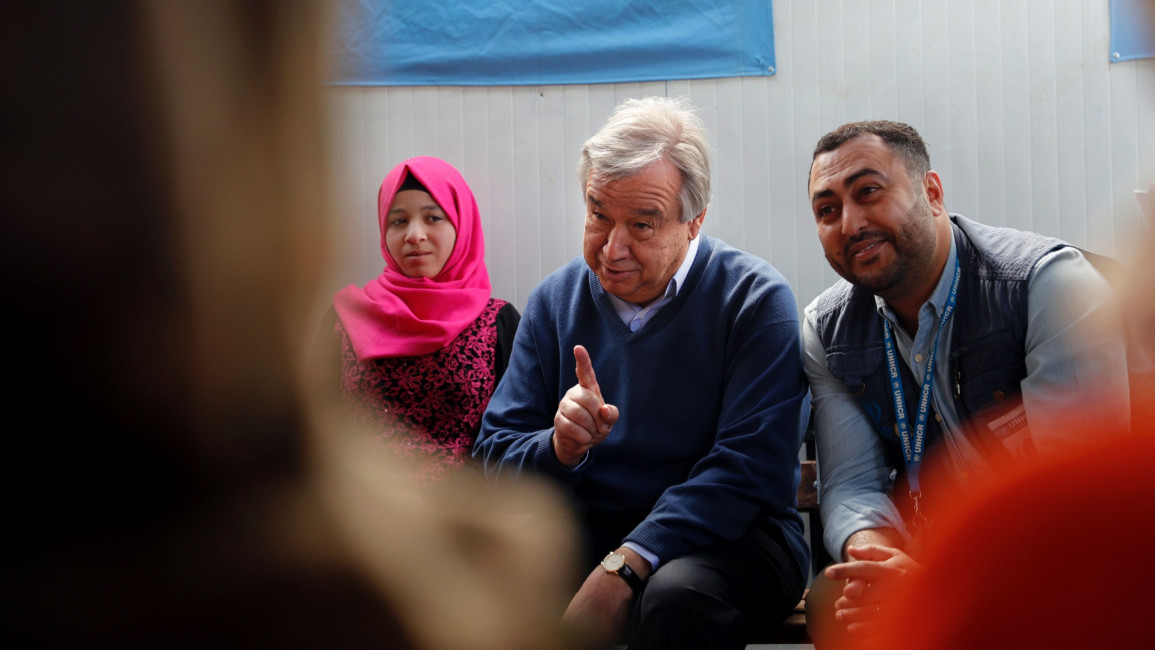UN chief in Iraq amid growing concerns for civilians
UN chief Antonio Guterres visited Iraq on Thursday, calling for protecting civilians to be the "absolute priority" as hundreds of thousands are caught up in the battle to retake Mosul.
More than 200,000 people have fled west Mosul since the operation to oust Islamic State began last month, and officials and witnesses say that airstrikes have taken a devastating toll on civilians who remained in the city.
"Just arrived in Iraq to focus on the dire humanitarian situation on the ground. Protection of civilians must be the absolute priority," a post on the UN chief's official Twitter account said.
After his arrival in Baghdad, Guterres met Foreign Minister Ibrahim al-Jaafari, the UN's mission to Iraq said.
He was also due to hold talks with other top officials, including Prime Minister Haider al-Abadi, before flying to Irbil, the capital of Iraq's autonomous Kurdish region.
His visit comes at a critical time for Iraq, which is fighting to retake Mosul in a battle that has sparked myriad humanitarian concerns.
Widespread displacement is one, with Iraqi authorities saying that more than 200,000 people have fled west Mosul since February.
Camps have been set up around the city to provide shelter for the displaced, while others are staying with relatives, renting accommodation or residing in makeshift shelters or unfinished buildings.
 |
Displacement from Mosul has not reached the worst-case scenario of a million or more people that had been feared, but that has come at the cost of huge numbers of civilians being trapped in the middle of the battle. |  |
Civilians killed in Mosul
Displacement from Mosul has not reached the worst-case scenario of a million or more people that had been feared, but that has come at the cost of huge numbers of civilians being trapped in the middle of the battle.
The UN said earlier this month that some 600,000 civilians were still in west Mosul, 400,000 of them trapped in siege-like conditions in the Old City.
Remaining in the city has posed deadly danger to residents -- the UN human rights office said that more than 300 civilians were killed in west Mosul in a little over a month.
Gunfire, shelling, bombs and airstrikes have all taken their toll.
The US-led coalition carrying out strikes against IS said it had "probably" played a role in civilian deaths in west Mosul, while the Iraqi government has sought to blame them on the extremists.
Both the UN and Amnesty International have called on Iraqi forces and the coalition to do more to protect civilians in Mosul.
Amnesty's Donatella Rovera said field research in east Mosul -- which was recaptured from IS in January -- showed "an alarming pattern of US-led coalition airstrikes which have destroyed whole houses with entire families inside".
"The high civilian toll suggests that coalition forces... have failed to take adequate precautions to prevent civilian deaths, in flagrant violation of international humanitarian law," she said.
IS overran large areas north and west of Baghdad in 2014, but Iraqi forces backed by US-led airstrikes have since regained much of the territory they lost.
Iraqi forces launched a major operation to retake Mosul in October, retaking its eastern side before setting their sites on the smaller but more densely populated west.



